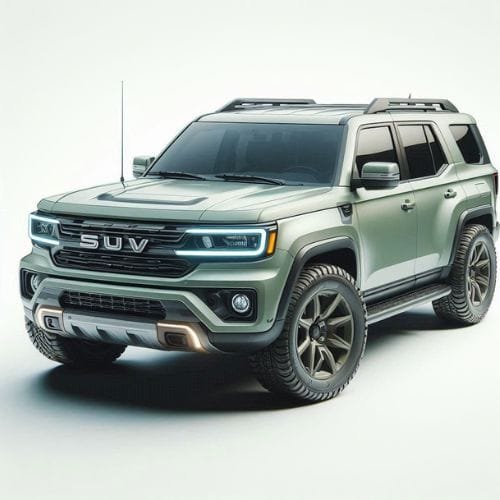New vs. Used SUVs for Off-Roading: Find the Best Fit for You
Which SUV is Best for Off-Roading? The choice between a new or used SUV for off-roading can be tricky. Both options have pros and cons, and the right one depends on your needs and budget. You will also learn how to inspect a used SUV for off-roading. Let’s break it down so you can choose the best off-road companion.

However, before you explore further, you might want to know the Most Reliable SUVs For Tropical Regions.
Why Buy a New SUV?
A new SUV comes with perks that many buyers appreciate.
Cons of Buying a New SUV
Check our guide: Top Dealerships for First-Time Off-Road Buyers in Germany
Why Consider a Used SUV?
Buying used can be a smart move for those looking to save.
Cons of Buying a Used SUV
Potential Hidden Issues
Used SUVs might have hidden wear from previous off-road use. Older models often have suspension problems or rust. It is vital to inspect a used SUV carefully or hire a professional.
Limited Warranty
Most used SUVs don’t have a warranty unless certified pre-owned. Repairs could add unexpected costs, especially if the vehicle has been through demanding off-road conditions.
Check also our ultimate guide: First-Time Off-Road Car Buying
How to Inspect a Used SUV for Off-Roading
If you’re leaning towards buying used, a thorough inspection is vital. Here are some quick tips:
New vs. Used: Cost of Maintenance and Repairs
Off-roader SUV Maintenance Costs
New SUVs usually require less maintenance for the first few years, and repairs are often covered under warranty. On the other hand, used SUVs may need more frequent upkeep, especially if they’ve been off-road frequently. However, parts for older models are often more affordable and more accessible.
SUV Repair Costs
Used SUVs without warranties can increase repair costs over time. This is something to consider if you plan to take your SUV off-road frequently.
Environmental Impact Of SUV
A used SUV might be less fuel-efficient than new models, but buying used also has environmental benefits. Manufacturing a new vehicle produces a significant carbon footprint while opting for a used SUV contributes to sustainability by reducing the demand for new production.
Financing and Insurance Tips
Conclusion Which SUV is Best for Off-Roading?
Both new and used SUVs have merits for off-roading in Europe. A new SUV offers the latest technology, no previous wear, and a manufacturer’s warranty, but it is more expensive and depreciates quickly. A used SUV is more affordable, depreciates slower, and may come with valuable modifications, but it requires careful inspection to avoid potential issues.
Before deciding, consider your budget, how frequently you’ll be off-roading, and whether you value advanced technology or cost savings. Either way, Europe’s diverse terrains—from the rocky trails of Scotland to the beaches of southern Spain—await your next adventure. And don’t forget to inspect a used SUV before going off-road.
For further reading on SUVs and off-roading, explore these related articles:
